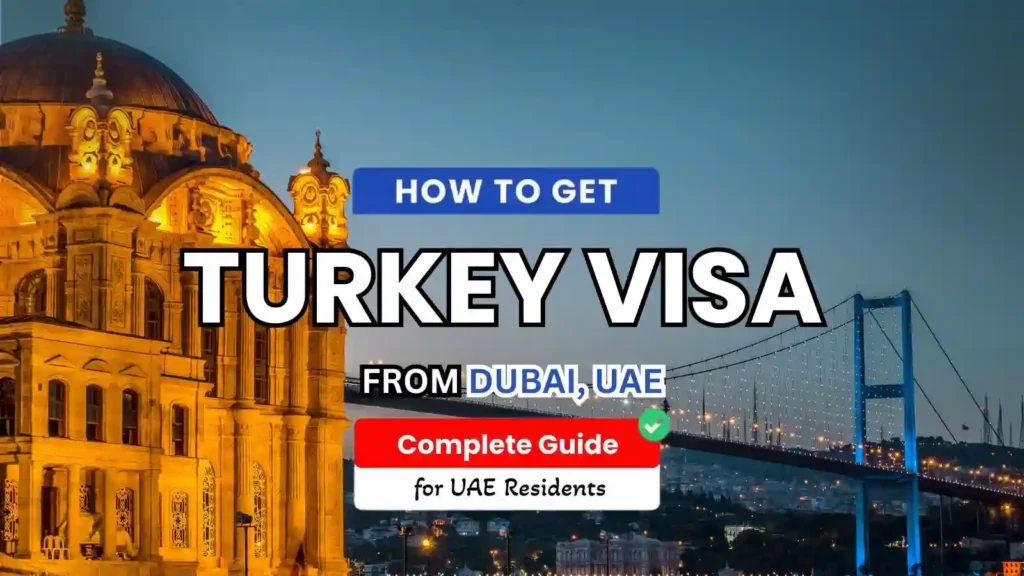
Turkey has a way of pulling you in—golden mosques at sunset, tea glasses clinking in back-street cafés, coastlines that look like they’ve been edited by a perfectionist. If you’re flying out from the UAE, a little visa prep turns all that daydreaming into booked seats and real plans. Here’s the human, plain-English version of what you need and how to get it done without turning your week into paperwork.
Start with the basics
The quickest way to avoid drama is to check your passport situation first. If you’re an Emirati citizen, you can visit visa-free for up to 90 days in any 180-day window. If you’re an expatriate living in the UAE, you’ll likely need a visa—either the quick online eVisa (if your nationality qualifies) or a sticker visa through the Turkish Embassy/Consulate. Always check by nationality, not just where you live. It’s the two-minute search that can save you two weeks of rescheduling.
Pick the lane that matches your trip
Keep it honest and simple. If you’re going for museums, food, and photo walks, you’re looking at a tourist visa. Headed for meetings or a trade show? That’s a business visa. Studying or working needs a student or work visa with extra steps. Matching the visa to the purpose makes the rest of the process line up like dominoes.
Build a tidy document pack
Think of your application like a neat carry-on: everything has a pocket, nothing is crumpled, and you can grab what you need in seconds. Most applicants will prepare:
-
A passport that’s valid at least six months from your arrival date (and has a couple of empty pages left).
-
A UAE residence visa that stays valid beyond your return.
-
A completed application form (online for eVisa; printed for consular).
-
Two recent passport photos on a white background.
-
Return flights and accommodation details (hotel booking or host letter).
-
Bank statements for the last three months that clearly show your name, dates, and balances.
-
Travel insurance that actually covers the dates you’ll be away.
Business, student, or work trips add their own paperwork (invitation letters, admission letters, contracts). Keep scans clean and uncropped—no shadows, no missing corners. It sounds fussy; it saves time.
eVisa or consulate: choose what fits
eVisa (eligible nationalities):
This is the fast lane. You fill out a short form on the official portal, pay by card, and usually receive approval within minutes to a few hours. Print a copy and keep a PDF on your phone—because batteries have a sense of humor.
Book an appointment with the Turkish Consulate in Dubai or the Embassy in Abu Dhabi (or follow the instructed visa center). Bring your originals and copies, submit the file, pay the fee, and you’re set. Timelines are usually five to seven working days, but during busy seasons it can take longer—exactly why Global Sky Visa helps you prepare every document upfront, so your file moves forward without avoidable delays.
Fees and timing (aka: set your expectations)
Costs depend on nationality, visa type, and whether you apply online or through the mission. eVisa fees are paid online; sticker-visa fees vary for single vs. multiple entry. Check the latest numbers right before you apply—they can change quietly. As for timing, give yourself breathing room: aim to submit at least two weeks before you fly. Keep flights and hotels flexible or refundable until approval lands in your inbox.
Tell one clear story
Visa officers are reading for sense and consistency. Help them see it at a glance. Make sure dates match across the form, flights, and hotel. If you’re mixing business and leisure, say it plainly: “Three days of meetings in Istanbul, then four days in Antalya.” If there’s a large recent deposit in your bank statement (bonus, refund, car sale), add a one-line note. You’re not writing a saga—just removing question marks.
Avoid the small mistakes that cause big delays
Most hiccups come from tiny things: a name spelled differently than in the passport, a photo that misses the size or background rules, a passport that expires too soon, screenshots instead of full bank pages, or flights that say one thing while your application says another. Fixing these on paper is much easier than explaining them at a window.
A few habits that make everything easier
Create a folder named “Turkey Visa – YourName” and label files clearly: Flights.pdf, Hotel_Istanbul_5N.pdf, BankStatements_May–Jul.pdf. Keep a printed pack for travel day—tech gremlins love airport queues. Save your hotel address in your notes and your maps app. Bring a backup card from a different network and turn on transaction alerts. None of this is glamorous; all of it is calming.
What to carry on travel day
Keep the essentials where you can reach them without unpacking your life: passport, visa/eVisa printout, return ticket, hotel confirmation, insurance, and (for business) your invitation and employer letter. If an officer asks about your plan, one clear sentence is perfect: “Seven days, Istanbul and Cappadocia, returning on [date].” Short, specific, done.
Quick pre-submission sweep
-
Names and dates match everywhere.
-
Passport valid 6+ months, two blank pages left.
-
Flights and hotels align with the dates on your form.
-
Bank statements are full pages—legible, recent, in your name.
-
Purpose documents (invitation/admission/contract) include dates, addresses, and contact details.
-
Printed copies ready in case your phone goes dramatic at the gate.
Final word before you book the baklava tour
From the UAE to Turkey, the visa isn’t meant to be a maze. Pick the right category, choose the right lane (eVisa or consulate), and present a file that reads like a well-packed bag—everything clean, complete, and easy to find. Do that, and the visa becomes a checkpoint, not a hurdle. After that, your biggest decisions are the fun ones: ferry or tram, meze before or after the sunset, and whether one extra day in Cappadocia is really “extra” once you’ve seen those balloons rise.
